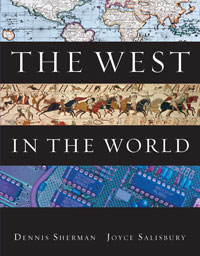1 A) realists, not idealists. B) idealists, not realists. C) Italian. D) monarchs rather than republicans. 2 A) Rome. B) Piedmont. C) Trieste. D) Naples. 3 A) Garibaldi. B) Victor Emmanuel II. C) Cavour. D) Napoleon III. 4 A) for continuing to maintain, in spite of political developments, that the Austrian empire was "great by reason of its physical power, greater still by reason of its education and the intelligence which permeates it!" B) for saying "I cannot make a speech, but I can make Germany." C) for his attitude that German unification would be achieved "not by speeches and majority resolutions...but by blood and iron." D) for being called "the sick man of Europe" in diplomatic circles. 5 A) liberalism. B) socialism. C) Realpolitik. D) compromise. 6 A) the German Confederation. B) the North German Confederation. C) the Reichstag. D) the German Empire. 7 A) problems over joint rule of Schleswig and Holstein. B) Russians. C) Ems telegraph dispatch. D) Austrian chancellor. 8 A) Third Republic. B) Third Empire. C) Second Republic. D) Second Reich. 9 A) industrialization. B) states' rights versus federal power. C) the separation of church and state. D) slavery. 10 A) gave Canadians limited control over domestic affairs. B) punished an earlier Canadian rebellion. C) relinquished border control between Canada and the United States to the latter. D) united Canada into a single, independent nation. 11 A) declared that Francis Joseph would abdicate the Hungarian throne. B) united the two under a common ruler, but with each having a separate parliament. C) made each one an independent state. D) reduced Hungary to the same status as the empire's other nationalities. 12 A) Austrian Empire B) Ottoman Empire C) Russian Empire D) Prussia 13 A) Mexico. B) Brazil. C) Canada. D) Italy. 14 A) enacting his "Great Reforms." B) entering the Crimean War. C) legalizing labor unions. D) making more peasants serfs to provide free labor. 15 A) Russia's defeat in the Crimean War. B) a Polish revolution. C) the Decembrist uprising. D) the Polish nobility's vote to remain part of the empire. 16 A) It lost ground to liberalism. B) It became associated with revolution. C) It had the same unifying effect in all European states. D) It was a tool used by elite politicians for state-building. 17 A) He relied on popular nationalist enthusiasm to achieve Italian unification. B) He favored the creation of an Italian democratic republic. C) He regarded Austria as the main obstacle to Italian unification. D) His ultimate goal was to annex Rome to Italy. 18 A) It was dominated by Austria. B) It was unified under the Germanic Confederation. C) The Austrian-controlled Zollverein helped to hinder unity. D) It was united religiously, even if not politically. 19 A) Due to the strength of Austria, the war lasted well over a year. B) Austria was expelled from the German Confederation in the aftermath. C) Prussia annexed several important Austrian territories. D) It resulted in the formation of the North German Confederation. 20 A) It was second in power on the European continent only to France. B) It included only German-speaking territory. C) It was proclaimed to be the "Second Reich." D) Its twenty-five states shared power equally with each other.





